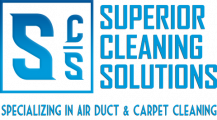Power Washing Cement vs. Concrete
There are few things more satisfying than a good power wash. Years of dirt, grime, and plant growth suddenly disappear, revealing the original surface, gleaming like it’s brand new! However, not all surfaces are created equal, and different materials must be treated with unique techniques.
Power Washing
In short, power washing is shooting highly-pressurized water out of a small, metal tube. Power washing can take off dirt, debris, mold, dust, and other hard-to-remove substances (even paint, if you’re not careful!). Commonly used to deep clean the outside of the house, windows included, power washing can also be used on flooring, usually patios, decks, and driveways with signs of your last failed attempt at changing the oil in your car. But when it comes to cement and concrete, it’s important to know the differences between the two in order to get the best results.
The Difference Between Cement and Concrete
It’s actually quite simple: cement is one of the main ingredients in creating what is actually concrete. While cement is not used on its own as a surface, the final result of the mixture, concrete, is what is often referred to as either “cement” or “concrete”. When it comes to determining how strong or weak your particular mixture is, it’s important to examine the state of the concrete. Is there crumbling around the edges, large cracks, or deterioration in the mortar or joint sand? Has your concrete been previously sealed? Keep track of the health of the concrete- this will help you determine which nozzle to use, the correct amount of pressure, and what techniques are safest when cleaning.
Tips For Safe Power Washing
Without getting too specific, here are a few tips for power washing your concrete without causing damage:
- Test the water pressure and nozzle away from the concrete before getting started
- In general, use a larger nozzle (25 degree or larger) to make sure the water pressure isn’t too high
- For grease stains or spots, you may want to use a smaller nozzle
- Keep at least a 10-foot distance from the area you’re cleaning, to protect the surface
- Keep it moving- never keep the spray focused on a single spot for more than a couple seconds, or you will risk damaging the concrete
Superior Cleaning Solutions
At Superior Cleaning Solutions, we have the expertise you need for a job well done. To set up an assessment of your concrete, and make an appointment to have it professionally cleaned, contact us today!
